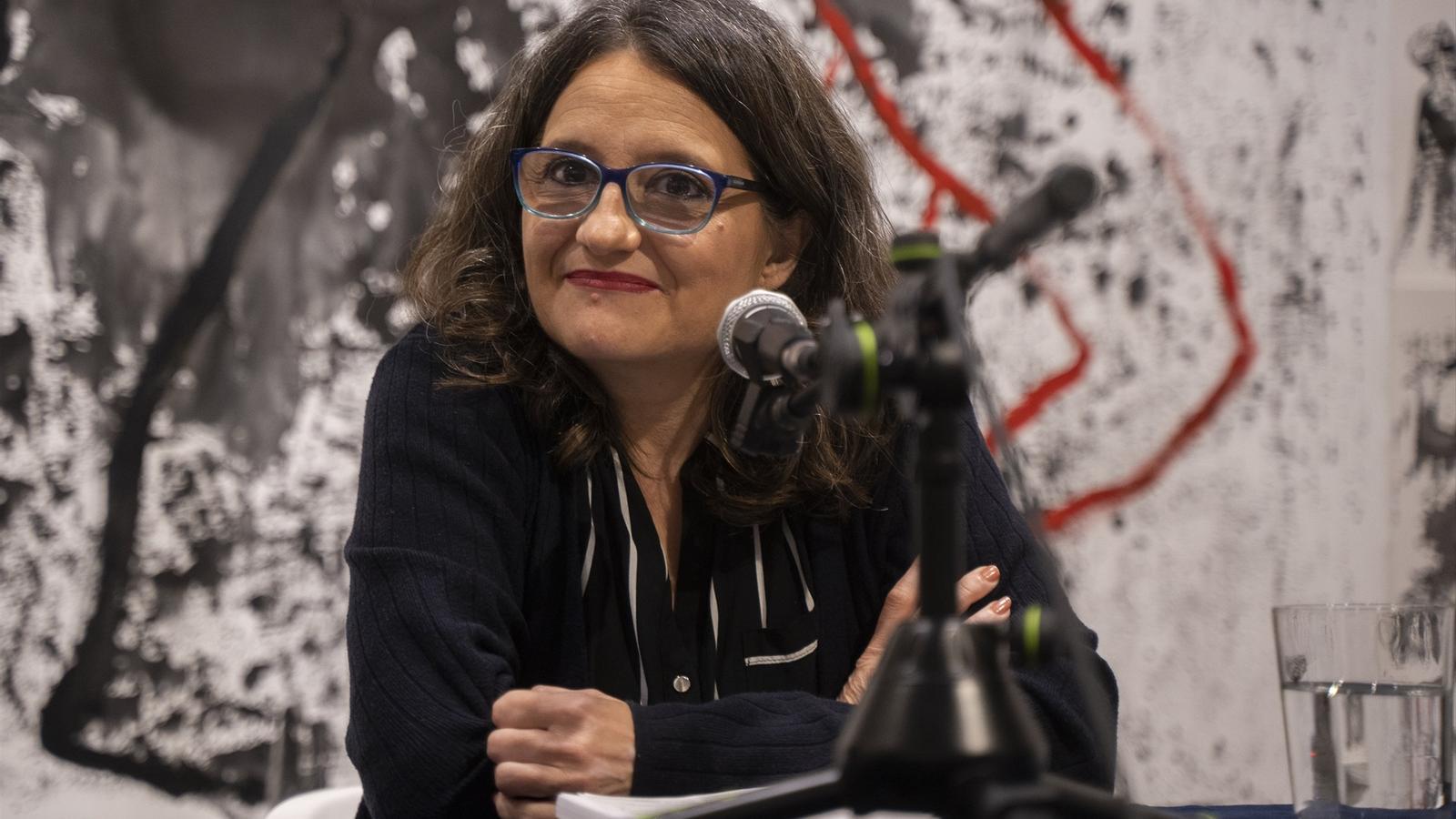Mónica Oltra is considering leading a candidacy that surpasses Compromís.
The former Valencian vice president shows her disenchantment with the evolution of the coalition and will not wait for her legal situation to be resolved to decide.

ValenciaThree years ago, Mónica Oltra resigned from her position as vice president of the Valencian government because she was charged in case investigating possible cover-up of abuse of a minor under guardianshipBut, above all, because she felt she didn't have the support of the PSPV (Spanish Socialist Workers' Party), Podemos, or the nationalists of Més, the main party in Compromís (she is a member of Iniciativa). Publicly, the Valencianists have always supported the progressive leader, but those around Oltra reproach them for this defense having occurred "only behind closed doors." Since June 21, 2022, the distance between the former vice president and her coalition partners has continued to grow. The gap has been widened by the fact that in recent years Más has consolidated its position of dominance over Compromís. Previously, the nationalists shared power with an Iniciativa party with far fewer members, but which enjoyed Oltra's electoral appeal. Now, however, they assert their majority, and the best example of how the mess is growing has been the split within the coalition in Congress. "She no longer feels represented by the current Commitment. And neither does Initiative," the same sources at ARA explain. Therefore, Mónica Oltra is now considering returning to the front line under the umbrella of another political project.
The danger of a split within Compromís is exacerbated by the fact that the former vice president has never been a loyal supporter of its party. It's worth remembering that the current coalition's configuration came about when, in 2007, she and former Catalan minister Mireia Mollà agreed with the then Valencian Nationalist Bloc (now Más) to elect Oltra as the spokesperson in the Catalan Parliament for a nascent Compromís parliamentary group. The decision was made against the advice of the leadership of the United Left (Izquierda Unida, EU), to which both parties then belonged, which demanded the appointment of its regional coordinator, Glòria Marcos. The decision led to the in the expulsion of Oltra and Mollà, which quickly transformed an internal EU movement—Izquierda y País—into a party—Iniciativa. Returning to the present, for now, the progressive loss of electoral appeal of Compromís does not encourage the former vice president to opt for continuity. In the last regional elections, it lost two seats, going from 17 to 15. In 2015, it achieved 19—its all-time high.
This entire context explains why, as ARA has been able to confirm, the progressive leader is considering that if she must return to the political frontline, the formula with the best chance of success would be to lead a broad front that could exclude Podemos, given the difficulties expressed by all the actors in reaching an understanding with the party. The candidacy would include Izquierda Unida and a newly formed party: Unión Municipalista. The hypothetical alliance with the latter is favored by Oltra's friendship with their top leader, the former Socialist Jorge Rodríguez. The former president of the Valencia Provincial Council has also endured a traumatic legal process—from which he was finally acquitted– and an equally painful departure from the PSPV. Experiences that have brought them closer.
If Oltra were to take the step of returning to the front line – whether in a candidacy for the presidency of the Generalitat or the Valencia City Council – and promote a broad front, the ball would be in Més's court. The Valencianists do not smile when they hear the option of negotiating with the Municipalist Union. They argue that they are a party without a clear political line that has agreed with the PP, the Valencia Provincial Council. Furthermore, it would not be surprising if the nationalists interpreted the former vice president's move as a way to regain control. Més also believes that voters "wouldn't understand" the alliance with the former socialist and explains to ARA that the operation responds more "to the interests of Rodríguez's people," who have publicly recognized her wish. Meanwhile, Oltra maintains a strategic silence. What she has said is that she will not wait for her legal situation to be resolved before making a decision. "The court will no longer dictate their timing," her collaborators emphasize.
